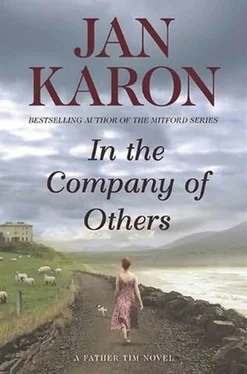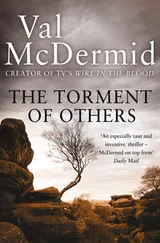I remember C imploring Uncle not to leave the house in the evenings-from the cradle both C & I had impressed upon us a fear of night air, to the extent we imagined it as veritably writhing with wicked humours of every type. But away he would go, pulling the broad lapel of his overcoat about his face & setting off in the carriage with his driver, Mercy, a freed slave from Virginia. We knew we may not see him for some days, or he may appear the next morning at breakfast. No one ever showed surprise at his coming & going nor was any mention made of where he had been or might be going. Sukey knew more than the rest of us, but was as remote about Uncle’s affairs as he.
And the riots-they were ever at the Riots in Pa., Negroes & Irish fighting for the same jobs, the same housing & wages-300 constables called in to quell the bloody fracases at South Street above Seventh.
Riots in ’35 followed by an outbreak of typhus, & in 1849, cholera again with a death toll of 1,000.
Tis making Ireland look the safe place, said Uncle.
I remember this tonight upon the brink of Winter, & think how little prejudice was turned against Uncle for his Irish blood, & how I flourished in his shadow. ‘He’s not like the rest of your lot,’ was said to me on several occasions. It was the first time I felt the menace of something I now erase from memory once for all.
J is a good worker & has quickly made herself useful-we cannot turn her out & so will have a babby in the house come spring. God knows if it is not one thing, tis a dozen more-C again with the headache & the Passiflora no comfort. I hardly know what is to be done.
4 November
I have come face to face with the darkness in myself-has it always been there & I have chosen to look away? Or has it come upon me solely because of the ravening hunger I must deny? I am stalked like prey.
10 November?
Last night was black & starless & no candle nor firelight in her chamber. Yet there seemed a Phosphoresence in the room.
I had brought up a Compress of ice & took it to the chaise where she lay inert as any corpse. I stooped to apply the compress to her forehead, but something in her spirit rebuked me.
What is it, my love? I ask.
I am not your love, she says.
It was as if someone else had spoken.
This house is your love. The Irish poor are your love. I am your occasional nurse.
The remark was beyond my comprehension.
I thought we shared this dream, I said at last.
I did share it, she said. I did wish to come here, I did wish to live in the little cottage with its dirt floor & red hens & I did wish to come at last to this house & enter into your private dream. But now tis like the fairies have stolen you & I am gone from your heart. I have searched for my place there, the old place I have called Home these many years but the door is closed & I fear it shall soon be locked.
I felt all the known world slipping from me. Suddenly I could no longer stand & I sat in the chair beside the chaise.
Do you want the Oil, I say, my voice nearly gone.
You touch me with the Oil but your hands no longer know me.
We are often weary, I say. It is the long hours & the many obligations…
I ken your needs before you know them yourself, she says. But you remember little of mine. When I speak to you, you do not hear-your mind has hidden from me. I once saw myself in your eyes but I am never there these many months.
I gave you this house, I say, for it is all I know to say.
You gave this house to the people, we but live & work here. You gave this house to Ireland as a banner for hope & courage.
I am trembling like an old man. The mist is rising in me.
You are unfair, I say.
I am a woman, she says.
The compress ices my fingers, but I can not put it to her forehead. It is a Benediction that can not yet be offered. I lay the compress on the stone sill of the window & cross myself & make a petition. The Phosphorescence continues-for a very long time I sit frozen, my breast tormented nearly beyond endurance. I know of course what I must do.
I lean close to reckon whether she is sleeping now & hear her ragged breathing-she is awake. I say her name & she stirs.
I must take something from you, I say. I hardly recognize my voice. But I vow to give you myself in return.
She turns on the chaise & in the darkness I see the milky white of her eyes opened to me.
As God is my witness, I say, I never touched her.
After a time her cold hand takes mine & we hold to each other, drawing the little warmth into ourselves.
He inserted his bookmark next to Cynthia’s, sobered. He and his sleeping wife were now at the same hard place in the life of Fintan O’Donnell. He closed the journal and went into the bathroom and removed the robe.
The email sailed in under the door as he dressed for dinner.
‹Dear Fr Tim,
‹I cannot BELIEVE you emailed Lord’s Chapel for prayer without going through me. You know you do not have to go direct to ANYBODY when I can go direct FOR you. I cannot believe you did not ask me to pray for Cynthia and that this request had to come from a person I don’t even KNOW at LC. There are way too many people NOBODY knows down there, you have to go over to the PRESBYTERIANS to find somebody you ever laid eyes on. It’s all the DEVELOPMENT our fancy schmancy Mayor is so crazy about, which is what we get for not appreciating Esther Cunningham who practically gave her LIFE to keep out the HORDES.
‹Emma
‹P. S. The Waterford pattern I like is LISMORE›
He passed the email to her and waited.
There! Laughter unhindered. He would hug Emma Newland’s neck when he got home. As for what he’d say about the absence of a $300 vase, shipping not included, he would cross that bridge when he got to it.
‘Will you be all right, then?’ he asked. She was watching an Irish game show from her wing chair, obediently elevating the Historic Ankle.
‘Go and be as the butterfly,’ she said, waving him off.
He stepped out to the hall, closed the door behind him, opened it again. ‘No fair reading the journal ahead of me, Kav’na.’
In the library, Anna introduced a merry party of Sweeneys and the woman who writes books-tall, with a cloud of graying hair, accompanied by her ten-year-old niece, who had learned Gaelic for the trip.
‘Gaelic? ’ he said, astonished.
‘Only enough to get by,’ said Emily.
The sunshine had returned to Broughadoon. When Maureen came round with a tray of cheese biscuits, he kissed her on both cheeks.
‘And how did you find your aunt?’
‘Ninety-four she is, with every tooth her own an’ Mass twice a day. I took me paintin’ along, ’twas seen by th’ half of Ballina.’
‘Cynthia will be happy you’re home.’
‘I’ll be takin’ up her dinner. I can hardly turn my back on th’ poor darlin’ for th’ trouble she’s into.’
William sported a tie he hadn’t seen; Liam was his personable self, chatting up the newbies, delivering drinks. Feast or famine, this lodging business-a full house was a very good thing.
He was spooning up the last of his sugar-free afters when Seamus called. Into the kitchen and the gargle of Dishwasher #1.
‘Mrs. Conor is askin’ you up tomorrow at eleven.’
‘What’s that?’
‘Mrs. Conor. She’s askin’ for you.’
He was surprised. They had spoken but once on the night ride to Sligo. He had said, ‘I’m praying for you.’ White with pain, she had snapped at him: ‘Do as you please.’
‘I’ll be there.’
‘Dr. Feeney’s on his way down, said he’d meet you at th’ front hall, if you’d be so kind.’
‘How is she?’
‘Th’ tremors an’ all th’ rest. ’t is killin’ me to see it.’
Читать дальше












